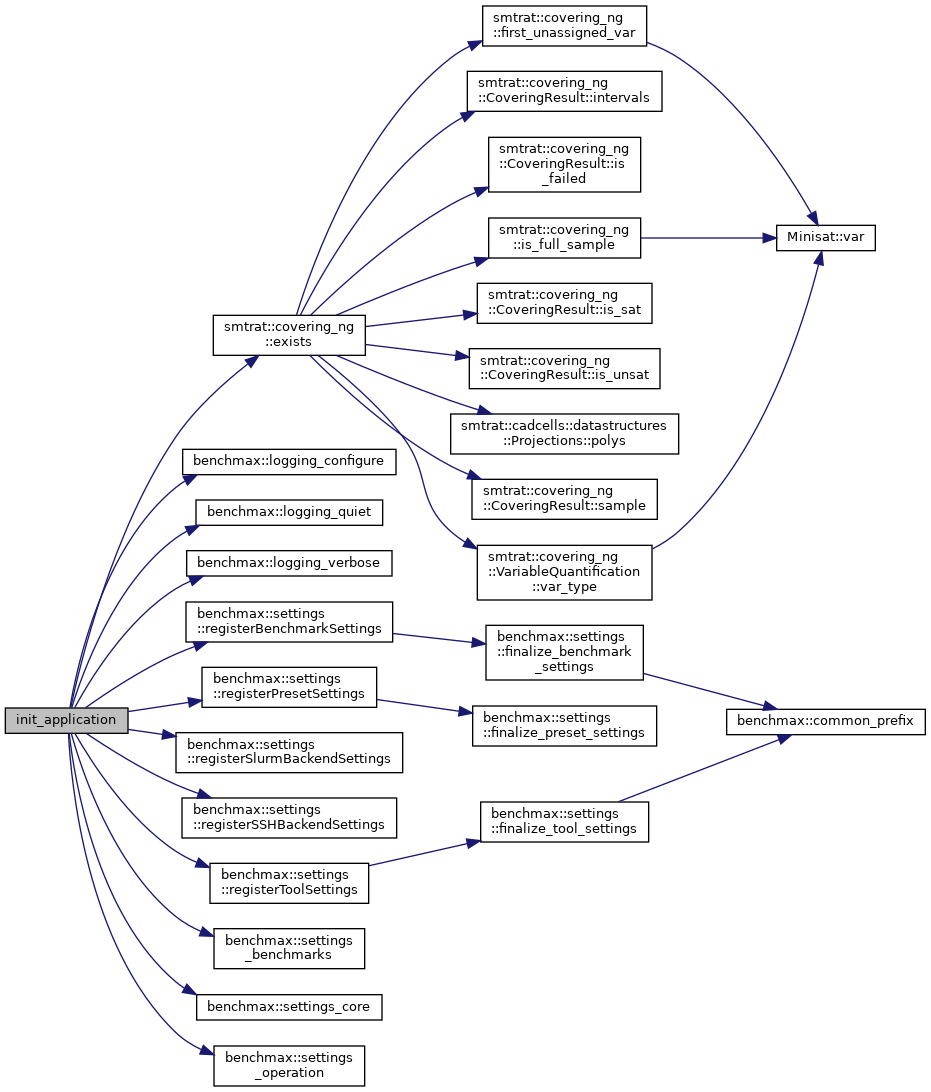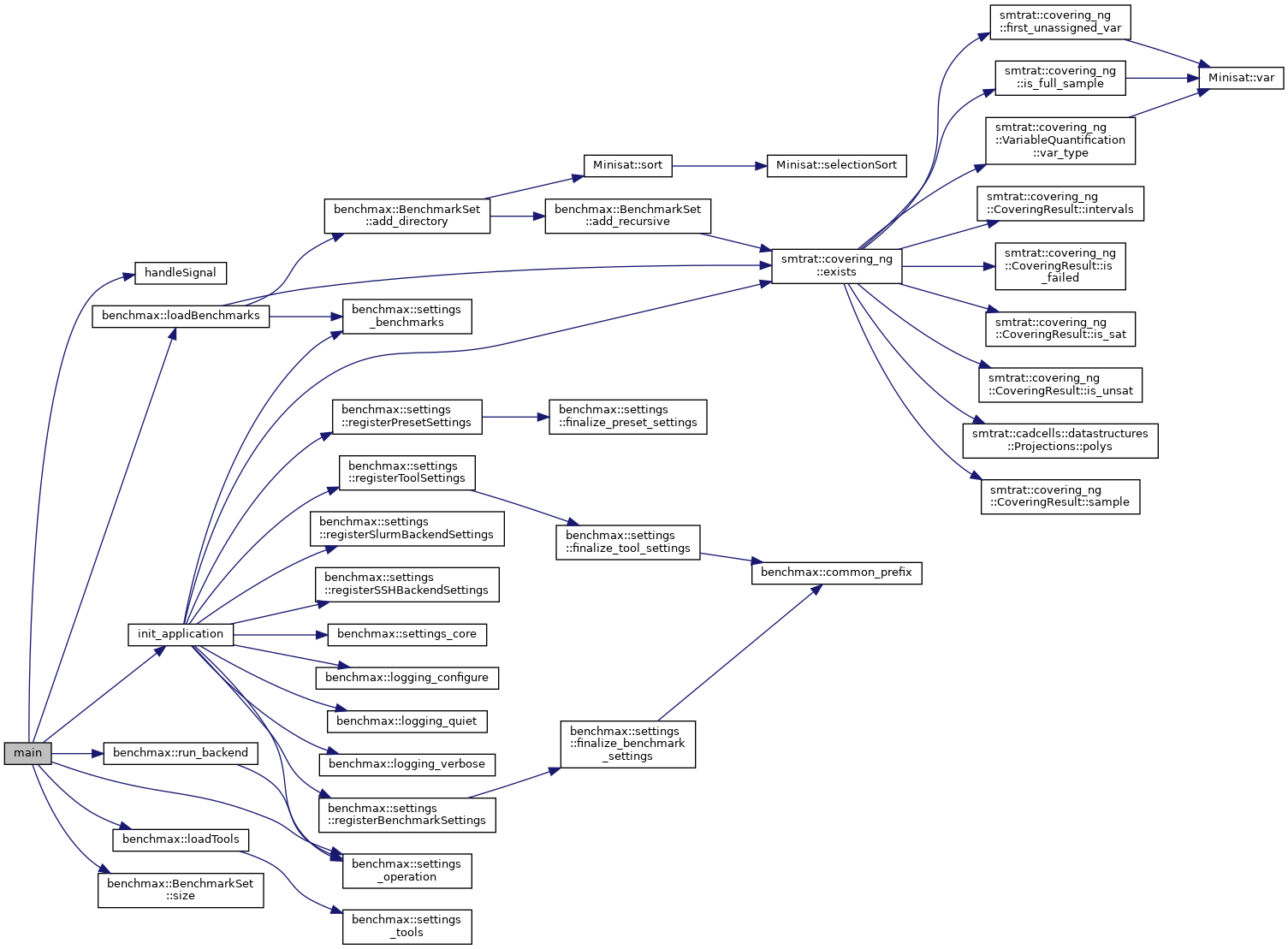 |
SMT-RAT
24.02
Toolbox for Strategic and Parallel Satisfiability-Modulo-Theories Solving
|
 |
SMT-RAT
24.02
Toolbox for Strategic and Parallel Satisfiability-Modulo-Theories Solving
|
#include <csignal>#include <filesystem>#include <iostream>#include "config.h"#include "logging.h"#include "backends/Backends.h"#include "backends/Jobs.h"#include "benchmarks/benchmarks.h"#include "tools/Tools.h"#include "settings/PresetSettings.h"#include "settings/Settings.h"#include "settings/SettingsParser.h"
Go to the source code of this file.
Functions | |
| bool | init_application (int argc, char **argv) |
| Initialized the application. More... | |
| void | handleSignal (int) |
| Handles the interrupt signal. More... | |
| int | main (int argc, char **argv) |
| Main program. More... | |
| void handleSignal | ( | int | ) |
Handles the interrupt signal.
Definition at line 91 of file benchmax.cpp.

| bool init_application | ( | int | argc, |
| char ** | argv | ||
| ) |
Initialized the application.
Takes care of loading settings from the command line and a config file. Afterwards checks for all options that are handled easily like being verbose or showing the help. Might signal to stop execution by returning true.
Definition at line 38 of file benchmax.cpp.


| int main | ( | int | argc, |
| char ** | argv | ||
| ) |
Main program.
Definition at line 100 of file benchmax.cpp.
